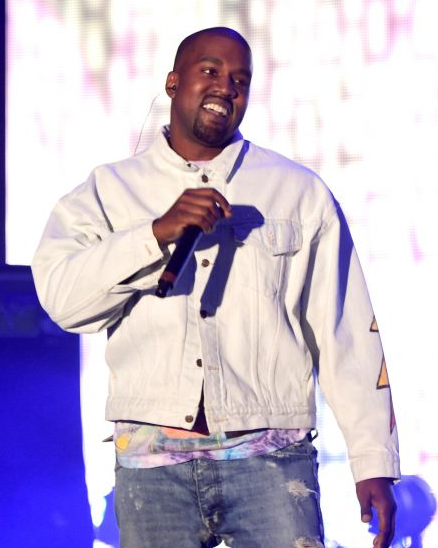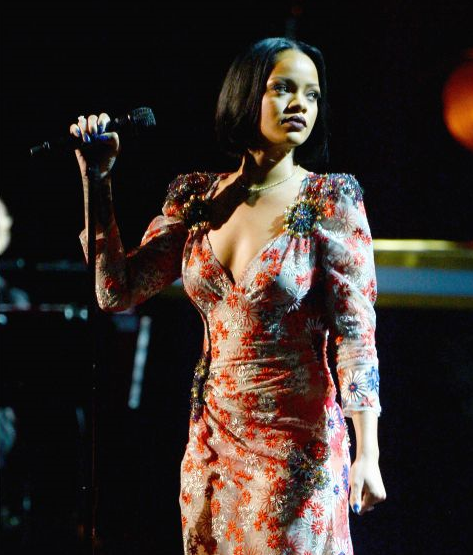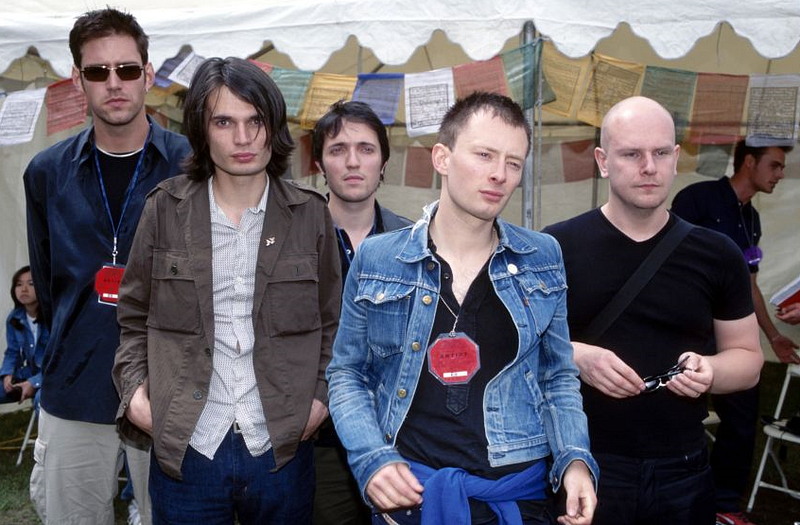Could Record Release Dates Be Played Out?
With more and more high profile artists like Beyoncé, Radiohead, and even David Bowie eschewing traditional record release dates in favor of surprise album drops accompanied by massive social media hype, the question is being raised if traditional album releases are becoming a thing of the past.
__________________________________
Guest Post by Roy Trakin on Medium
Shopping for the latest album releases used to be so easy. Physical product would be delivered to national retail chains, heralded either by hit singles on the radio, ads in the local circulars, a late-night TV appearance, and maybe even a larger-than-life billboard looming over Sunset Boulevard or Times Square.
The wireless wonder of the Internet was just a sci-fi fantasy when the rock & roll revolution was fueled on the relatively low-cost ability to cut 45s, whose instant messages — whether it was “Hound Dog,” “Eve Of Destruction,” “Like A Rolling Stone,” or “Ohio” — were the adolescent CNN of their day, beamed directly into the brainwaves of teen consumers, thanks to the jukebox, then the car radio and home stereo.
These days, a new album needs a lot more than a billboard or hit single to galvanize the public’s attention; it takes a nonstop barrage of social media and news headlines to force a commensurate Skinner box nibble by the masses, just as surely as 1,500 streams equal an album sale, according to Billboard.
With that dizzying kind of competition for attention, it’s no “surprise” that artists ranging from David Bowie, Beyoncé and Drake to Kanye West,Kendrick Lamar, Rihanna, and Radiohead have employed a new album release model built upon various surprise elements, to varying degrees of success.
Bowie’s Blackstar, released Jan. 8 on his 69th birthday, became the artist’s first No. 1 album, though his death just two days later surely launched it into the media zeitgeist. The fact that Bowie had kept the recording of the album a secret up until he released its first two singles was more the source of amazement — with both the title track and “Lazarus,” in retrospect, forming eerie, meticulously planned farewells — as the media-savvy, always futurist provocateur managed to successfully hijack the Internet and Google searches. It was almost as if he worked his own mortality into the marketing ofBlackstar, reinforcing his sharpened sense of how theatricality and art intermingled with life and death.
“Release dates is played out. So the surprise is gonna be a surprise,” declared West during a radio interview prior to the release of The Life Of Pablo. West’s much-anticipated album premiered for a celebrity-packed Madison Square Garden during a fashion show for his Yeezy Season 3 collection on Feb. 11, only to crash Tidal’s servers the next day.

For someone as meticulous as West, the endless tinkering allowed by the Internet’s malleable, open-ended deadline proved too much to overcome, prompting more than a half-million illegal downloads and an estimated $10 million in lost sales when its release to other digital services was delayed until April. The album did end up accumulating more than 250 million streams during its first 10 days of availability on Tidal and debuted at No. 1 on the Billboard 200, becoming the first album to do so with more than 50 percent of sales from streaming.
“Piracy remains a large issue,” says American Association of Independent Music CEO Richard James Burgess, regarding artists wanting to control Internet leaks and a new album’s narrative. “As soon as legitimate copies are available, they are up on YouTube and that undercuts any kind of marketing campaign. Lead times aren’t really necessary in a world where you can reach your fan base with a flick of a key.”

Rihanna brushed aside traditional promotional schemes with her aptly titled 2016 album,Anti. Released as a Tidal exclusive on Jan. 28, the album was “officially” announced via a tweetby the singer on Jan. 25, with the caption “listening to Anti.” A single, “Work” featuring Drake, was released on Jan. 27, which was followed by a “leak” of the album on Tidal. With the streaming leak came the track listing, which spawned song excerpts to surface on Twitter among fans. The eventual No. 1 album was officially released for sale via other retailers on Jan. 29.
Less than one month following his heralded 58th GRAMMY performance, Kendrick Lamar dropped a surprise collection of previously unreleased, untitled and unmastered songs to digital retailers on March 4. Like Rihanna, Lamar tapped Twitter to announce the project. Debuting at No. 1 in its first week, sales of the unmastered collection dipped 78 percent in its second week, despite the release of the album on LP and CD on March 11.
Beyoncé is arguably the queen of the surprise release model, dating back to her stealth 2013 self-titled album. More recently, Queen Bey began to plant seeds for the release of 2016’s Lemonade several months prior by posting a video for “Formation” on her YouTube channel on Feb. 6, the day before she performed the controversial song, in Black Panther military-style uniforms, during the halftime of Super Bowl 50. Just prior to the album’s release on April 23, HBO aired an hour-long visual treatment of all 12 songs on the album. When it was released — first as an exclusive on husband Jay Z’s Tidal service, then to other digital retailers — Lemonade was streamed 115 million times, and sold 485,000 album downloads and another 168,000 in track-equivalent and stream-equivalent albums, for a total of 653,000 equivalent album units in its first week of sales. All 12 of the album’s tracks also debuted simultaneously on the Billboard Hot 100, constituting a record.
Still, what about the beleaguered brick-and-mortar retailers? Bob Say, proprietor of Sherman Oaks, Calif., vinyl-heavy indie retailer Freakbeat Records, says he had to wait two weeks after Lemonade’s April 23 release to receive his shipment of the CD and accompanying DVD. Acknowledging his store’s indie demo isn’t exactly Beyoncé’s audience, Say ultimately ordered a half-dozen copies of the album. He says he received a single call about the album, and ended up selling just one copy.

Drake had been touting the release of Views, his latest studio album that recently debuted at No. 1, since an August 2014tweet. In between, he dropped another album, If Youre Reading This Its Too Late, on Feb. 13, 2015, without any prior announcement. The surprise release, which earned a Best Rap Album GRAMMY nomination, debuted at No. 1 on the Billboard200, selling 535,000 equivalent album units. It was also streamed 17.3 million times in three days on Spotify, a mark eclipsing his previous streaming record for his 2013 GRAMMY-nominated album, Nothing Was The Same.
When it comes to guerilla releases, Radiohead are perhaps the pioneers, launching the Internet-only In Rainbows in 2007 just days after it was announced with their novel pay-what-you-want scheme, an approach that led to what they claimed was their biggest-ever payday, selling more than 3 million copies without a label. For their new album, A Moon Shaped Pool, the band is also selling digital copies via their website as well as paid subscription services Apple Music, iTunes, Google Play, Amazon Music, and Tidal. However, the album is not available at Spotify, which bandleader Thom Yorke once famously referred to as “the last desperate fart of a dying corpse.” The album debuted at No. 3 with 181,000 equivalent album units, representing their biggest bow since 2003’s Hail To The Thief entered with 300,000.

The extent of the marketing campaign for A Moon Shaped Pool included a pair of singles/videos and wiping the band’s Internet footprint clean the week of its May 8 release, while emailing their database about the new album’s availability. The physical album, which includes limited deluxe editions and vinyl, won’t be released until June 17, but Freakbeat Records’ Say insists they are one of the few bands who can get away with such a plan. “Their hardcore fans have that collector’s mentality… they want every piece of product they can get their hands on,” he says.
One artist who is still a big believer in physical product is Adele, who combined traditional and surprise release elements for her latest studio album, 25. She not only personally announced 25 with an open letter just one month ahead of the album’s release, she also decided to initially withhold it from streaming services. “I believe music should be an event,” Adele toldTime. “I don’t use streaming. I buy my music… I know that streaming music is the future, but it’s not the only way to consume music.”

Adele’s call not to stream did not hinder 25’s success. The album tallied a gaudy 3.48 million equivalent album units in its first week of sales, 3.38 million of which were pure album sales — marking the single largest sales week since 1991.
Streaming exclusives versus physical product? To surprise release or not to surprise release? With artists such as Taylor Swift, Metallica, Foo Fighters,Justin Timberlake, Katy Perry, and Jay Z currently in between new album cycles, it’s fun to speculate how album release schemes will continue to play out.
Ian Montone, the manager for artists such as Jack White, Foster The People, LCD Soundsystem, Run The Jewels, Vampire Weekend, and Danger Mouse, among others, admits the surprise release strategy is probably more effective for superstars than young artists. He also emphasizes that despite their potential big-splash impact, a surprise album release should be one component to an overall campaign strategy.
“With streaming continuing to grow, as we get away from the shackles of ‘first-week’ sales determining an album’s life or death, [surprise releases] may be a good thing,” says Montone. “We still need to work campaigns just as long or more so, be it radio, your digital and streaming partners, or your label. It’s a two-year game, not just a first week, and streaming makes this conversation even more relevant.”